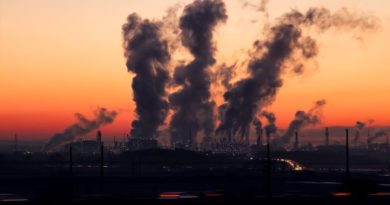The Nobel just went to an William Nordhaus and Paul Romer, economists who have done extensive work on the damage caused by climate change, and built models for long term sustainable growth. And now, the IPCC special report on climate change warns of massive impact by 2030 from climate change, not some distant date in the future.

Not enough Will to Fight?
If ever the world needed to listen to the signals coming in on climate change, the time is now. Within a week, we have seen two important announcements, from institutions not exactly known for scaremongering or adventurous predictions. The Nobel Prize jury, and the IPCC (Intergovernment Panel on Climate Change) have both got a well deserved reputation in general for being right in their choices and predictions, more often than not. so while William Nordhaus has been recognised for his work on the damage caused by climate change, Paul Romer has been feted for his sustainability modeling.
That’s the hopeful part. The IPCC on the other hand, itself a Nobel peace prize winner in 2007 for its work in building a consensus on climate change, has placed its latest report in public with some really dire predictions. Involving the world’s leading climate scientists, the report warns that climate change is building momentum, not efforts to stop it, and it could be too late to reverse it very soon. That very soon is as early as 2030, a point beyond which, if urgent action is not taken and works to limit global warming to 1.5 degrees, we might even cross the point of no return for significant swathes of the earth.The signs are already around us, becoming more pronounced by the year – more extreme weather events, rising sea levels, diminishing Arctic sea ice. The difference between limiting rise to 1.5 degrees and 2 degrees is profound, the IPCC quotes scientists saying.
A half degree difference means more heat waves for tens of millions of people. Far greater species loss. Increased water scarcity in some of the world’s most unstable regions. A ten-fold increase in Arctic ice-free summers. And a total wipe-out of the world’s coral reefs.The report points out that it is not yet impossible to limit rise to 1.5 degrees, but will require urgent and far more ambitious action to cut emissions by half by 2030 and reach net zero emissions by 2050.
This will take unprecedented changes in all aspects of society – especially in key sectors such as land, energy, industry, buildings, transport and cities. Be it an end to deforestation and massive afforestation. Massive reduction in the use of fossil fuels and a phase out of coal by 2050. Ramp up installation of wind and solar power; invest in climate-friendly sustainable agriculture; and consider new technologies such as carbon capture and storage.
We believe that on the evidence so far, the report needs to be taken very seriously, and major changes made right now in the way we approach climate change issues.
For starters, it is unbelievable that for a region and country on the front lines of climate change impact, political parties have not realised the ramifications. Every national budget needs to have a section on steps taken to mitigate climate change, and progress on targets. Election manifesto’s might be a collection of unkept promises for some, but still need to have a section on sustainability, we believe.
Like the Swacch Bharat Mission, Prime minister Modi needs to consider launching a Green India movement too, if that is what it will take to make people realise the critical need to save the environment. The global leadership India has demonstrated with the International Solar Alliance is probably incomplete without this.
Subsidies,implicit and explicit to fossil fuels need to be relooked, and diverted towards renewable energy.
One of our biggest challenges is the constant ignorance, untruths and blatant propaganda climate change, or even conservationists face. We seriously need to make the environment a core subject, and push to offer options in Climate Science to ensure we are not left behind in the search for better understanding and risk mitigation of the damage it can cause us.
Sustainability linked issues, like water availability are already a major issue for a majority of this country. It’s time the privileged few also developed a better understanding of water conservation and pollution. This is an initiative that needs leadership at state level to rise up and lead by example. Otherwise, as we ravage our resources, blaming each other is the only option we will be left with.
(Visited 337 times, 1 visits today)
 Not enough Will to Fight?
Not enough Will to Fight?




